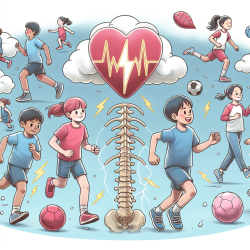Introduction
In the realm of public health, the U.S.-Mexico border presents unique challenges that require specialized training and preparedness. The research article "U.S.-Mexico Cross-Border Workforce Training Needs: Survey Implementation" offers valuable insights into the current state of emergency preparedness among public health workers in this region. This blog will explore how practitioners can leverage the findings of this study to enhance their skills and better serve their communities.
Understanding the Study
The study conducted by Rosales et al. aimed to assess the training needs of public health workers in the U.S.-Mexico border region. The research highlighted a significant gap in preparedness, particularly in bioterrorism, infectious disease management, and cross-border collaboration. With a response rate of 32%, the study gathered data from 163 participants across various roles, including epidemiologists, physicians, and public health leaders.
Key Findings
The study revealed several critical areas where public health workers felt underprepared:
- Core Bioterrorism Competencies: Only a minority of respondents felt well-prepared in this area, indicating a need for enhanced training.
- Border Competency: Skills related to cross-border collaboration and communication were not rated as highly important by respondents, despite their critical role in emergency preparedness.
- Cultural Responsiveness: There was a notable lack of emphasis on understanding cultural differences, which is essential for effective collaboration in the border region.
Implementing the Research Outcomes
Practitioners can take several steps to improve their skills based on the study's findings:
- Prioritize Core Competencies: Engage in continuous education and training programs that focus on core bioterrorism and emergency response skills. This can be achieved through online courses, workshops, and simulations.
- Enhance Cross-Border Collaboration: Develop and participate in binational training programs that emphasize communication and collaboration with Mexican counterparts. This will improve the overall preparedness of the workforce on both sides of the border.
- Foster Cultural Competency: Attend workshops and seminars that focus on cultural responsiveness. Understanding cultural nuances can significantly improve communication and cooperation during emergencies.
Encouraging Further Research
While the study provides a foundational understanding of training needs, further research is necessary to develop comprehensive training programs. Practitioners are encouraged to engage with academic institutions and public health organizations to explore new methodologies and strategies for workforce development.
Conclusion
Enhancing the skills of public health practitioners in the U.S.-Mexico border region is crucial for effective emergency preparedness and response. By implementing the outcomes of the research study and engaging in continuous learning, practitioners can better serve their communities and contribute to a more resilient public health infrastructure.
To read the original research paper, please follow this link: U.S.-Mexico cross-border workforce training needs: survey implementation.










